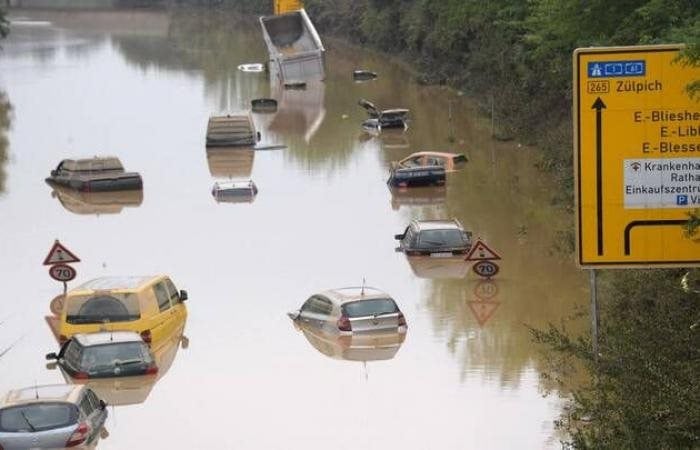
Serious losses
“Nearly 195,000 people in Europe died from floods, storms, heatwaves and cold, wildfires and landslides between 1980 and 2021,” the EEA said.
Although human losses due to floods are much lower, accounting for only 2% of the total, they cause the most damage, accounting for 56% of total economic losses.
Of the €560bn in damage, just €170bn – or 30% – was insured, the EEA said as it launched a new online portal collating recent data on the impact of extreme weather.
In fact, last summer in Europe saw more deaths than usual following repeated heatwaves, but the 2022 deaths were not included in the data released this time.
The EEA said that deaths in July 2022 were around 53,000 higher than the monthly average for the period 2016-2019, an increase of 16%, although not all of those deaths were directly attributable to heat. Meanwhile, Spain alone recorded more than 4,600 deaths related to extreme heat in June, July and August 2022.
Notably, climate models predict heat waves will last longer, be more intense, and occur more frequently.
Previously, in February 2022, the EAA published a report showing that extreme weather events killed 142,000 people and caused 510 billion euros in damage between 1980 and 2020.
The increase in the figures released today compared to February 2022 is partly due to the fact that in 2021, floods in Germany and Belgium caused economic losses of nearly 50 billion euros. In terms of deaths, the EEA points to a change in statistical methodology in France and Germany as the cause of the large difference.
Proposed response solutions
According to the EEA, human-caused climate change has increased the risk of drought by five or six times in 2022, a year in which wildfires ravaged twice as much territory as in recent years.
Experts also warn that droughts could be very costly. Estimates suggest that economic losses could rise from €9bn a year today to €25bn a year by the end of the century if the planet warms by 1.5°C. According to scientific scenarios, that figure could rise to €31bn if the Earth warms by 2°C and to €45bn if it warms by 3°C.
The EEA also warned that the consequences for agriculture could be devastating. It has therefore advised farmers to mitigate the adverse effects of rising temperatures and drought by adjusting crop varieties, changing sowing dates and changing irrigation patterns. Without changes, yields and farm incomes are expected to decline in the future.
“To prevent further damage, we urgently need to move from reacting to extreme weather events to proactively preparing for them,” said EEA expert Aleksandra Kazmierczak.
According to the latest data, heatwaves account for 81% of deaths and 15% of financial losses. As a result, the EEA recommends that Europe take steps to protect the continent’s ageing population, especially the elderly, who are more vulnerable to extreme heat.
The agency said that most national adaptation policies and health strategies recognize the impact of heat on the cardiovascular and respiratory systems, but less than 50% include actions to protect against the direct effects of increased temperatures such as dehydration or heatstroke.
Source



































































































Comment (0)